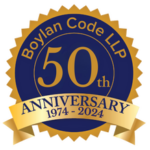Devin Lawton Palmer, Esq.
1) Ring v. Feathers-Swan (In re Swan), 2014 Bankr. LEXIS 650 / BK No. 08-11210/AP No. 13-1027 (Bankr. W.D.N.Y., Kaplan, J., February 18, 2014):
Is a debtors’ failure to honor a turnover order because they do not have the funds to do so constitute a denial of discharge under section 727(a)(6)(A)?
On March 25, 2008, the Debtors filed for Chapter 13 relief and included as potential non-exempt income, refunds for tax years 2007 and 2008 totaling $9,535.50. In 2010 the Debtors voluntarily converted to Chapter 7 and the Chapter 7 trustee filed a motion demanding the turnover of the aforementioned tax refund. Through negotiations with the Debtors’ then counsel, the parties agreed to a Turnover Order in March 2011, whereby the Debtors agreed to payments of $500 per month until the roughly $9,500 was repaid. Despite the foregoing, no payments were made and in August 2012, the trustee filed a Motion for Contempt. The return date fell on the same date as the Debtors’ attorneys’ motion to withdraw as counsel – both of which were granted without opposition. After still not receiving a monthly payment, the trustee filed an Adversary Proceeding based on section 727(a)(6)(A) seeking an objection to the Debtors’ discharge.
The Debtors’, through newly hired counsel, objected to the trustee’s motion for summary judgment in the AP, arguing that under 11 U.S.C. § 348(f)(1)(A) the court was “without jurisdiction” to enter the original turnover order (and contempt order). Therefore, there is no valid order of the Court which the Debtors have refused to obey for purposes of an objection to discharge under section 727(a)(6)(A). As support, the Debtors citied Judge Bucki’s decision of In re Schick, 452 B.R. 884 (Bankr. W.D.N.Y. 2011), which held that “if a Chapter 13 Debtor receives a tax refund after the filing of the petition but before conversion, and has expended the money in the ordinary course, in good faith, before conversion, then 11 U.S.C. § 348(f)(1)(A) provides that the Chapter 7 Trustee has no claim to the funds thus expended.” As in Schick, the Debtors here contend they spent the funds prior to conversion on necessary living expenses.
The Court found the Debtors’ contention that it was “without jurisdiction” to enter the earlier orders misplaced. The Court certainly had jurisdiction to determine a turnover and contempt motion, and even assuming those decisions were erroneous, “an erroneous decision is not a decision ‘without jurisdiction.’”
Instead, the Debtors should have opposed the original motion under the guidance of In re Schick and In re Lang, 437 B.R. 70 (Bankr. W.D.N.Y. 2010) and demonstrated: (a) the tax refunds received after the Chapter 13 petition were properly disclosed; and (b) the refund was spent in the ordinary course and in good faith before conversion. By failing to oppose the motion, the resulting order was neither erroneous nor without jurisdiction. In addition, the Debtors could have moved for relief from either order under Rules 59 and 60, but failed to do so. “Whenever a party decides that he, she or it cannot or will not perform an Order of the Court, the party is not free to disregard it…He, she or it must seek relief from the Order.”
That said, Judge Kaplan found that “it does not seem to this writer that all Chapter 7 debtors who are not fully compliant with an Order of the Court should be denied a discharge.” Section 727(a)(6)(A) deals with debtors who “refuse” to obey a lawful order. The trustee here failed to include any facts demonstrating the Debtors’ “refusal” to obey the instant Orders. Debtors who try mightily to honor a turnover order but fail should not suffer a denial of discharge. Here, “the Court is left to guess whether the Debtors simply turned their backs on an unpleasant obligation or whether they were financially unable to make even one payment as promised.” With the trustee failing to carry his burden, the Court denied the trustee’s Motion for Summary Judgment and asked that he “use his business judgment and legal judgment to negotiate [with the Debtors] a dollar amount as to which a money judgment shall be entered.”
1 § 727. Discharge
(a) The court shall grant the debtor a discharge, unless—
…
(6) the debtor has refused, in the case—
(A) to obey any lawful order of the court, other than an order to respond to a material question or to testify.
2 § 348. Effect of conversion.
(f) (1) Except as provided in paragraph (2), when a case under chapter 13 of this title is converted to a case under another chapter under this title–
(A) property of the estate in the converted case shall consist of property of the estate, as of the date of filing of the petition, that remains in the possession of or is under the control of the debtor on the date of conversion;
2) Geltzer v. Our Lady of Mt. Carmel-St. Benedicta School (In re Suara), 502 B.R. 12 (Bankr. E.D.N.Y. Dec. 4, 2013):
Is a debtors’ pre-petition payment of a minor child’s private education a fraudulent conveyance?
The Debtors’ Chapter 7 trustee filed an adversary proceedings against two parochial schools who, pre-petition, received timely tuition payments from the Debtors’ for the education of their two minor children. The trustee alleged that the payments constituted fraudulent conveyances as the parents themselves received no direct benefit for the payments and the private school education was “not reasonably necessary.” Under his argument, the Debtors did not receive reasonably equivalent value or fair consideration for the tuition payments under either section 548 of the Code or section 273 of the Debtor & Creditor Law.
The Court took the trustee to task, beginning its Decision with the following statement: “the trustee’s claims are based on a fundamentally flawed legal theory that is, moreover, at odds with common sense.” First, the Court found a parent has a legal obligation to supply his child with “adequate food, clothing, shelter [and] education…medical, dental, optometrical [and] surgical care.” Quoting the Fam. Ct. Act § 1012(f)(i)(A) and also citing N.Y. Educ. Law § 3212. By paying their children’s tuition, the Debtors were satisfying their legal obligations and therefore, receiving equivalent value and fair consideration, even if on an indirect basis.
In addition, citing the Court of Appeals decision of Holodook v. Spencer, 36 N.Y.2d 35 (1974), the Bankruptcy Court concluded that debtors and their minor children must be viewed as a single economic unit for purposes of whether a parent receives fair consideration for a payment on behalf of a child. “In other words, goods and services purchased by parents for their minor children should generally be treated, for purposes of constructive fraudulent conveyance analysis, as though they had been purchased by the parents for themselves.”
Moreover, the fact the Debtors chose private school or public school does not change the fact they received fair consideration for the tuition payments. “It is irrelevant to this determination whether the Debtors could have spent less on the children’s education, or, for that matter, on their clothing, food, or shelter.” The Court then outlined the slippery slope of the trustee’s reasoning by asking if a hypothetical trustee could avoid a child’s meal purchased by a parent debtor or clothing purchased, simply because a cheaper alternative was available. “A trustee is not granted veto power over a debtor’s personal decisions, at least with respect to pre-petition expenditures.”
The Bankruptcy Court found the trustee’s legal support off point as it mistakenly concentrated on the “reasonable necessary” analysis performed by a chapter 13 trustee in determining whether a debtor is committing all of his projected disposable income to fund a chapter 13 plan. See 11 U.S.C. § 1325(b)(1). This “analysis is entirely inapplicable in a chapter 7 case”, wrote the Court, continuing “none of the chapters of the Bankruptcy Code authorize the trustee to review the reasonableness of a debtor’s pre-petition expenditures or to seek recovery of expenditures deemed not ‘reasonably necessary.’”
Finally, the Court acknowledged that a conflict exists among the courts as to whether a parent’s payment of a non-minor child’s college tuition constitutes a fraudulent conveyance. That said, those cases are irrelevant to the facts in the instant case. Based on the foregoing, the Court dismissed the trustee’s AP.
Download a PDF of this article


